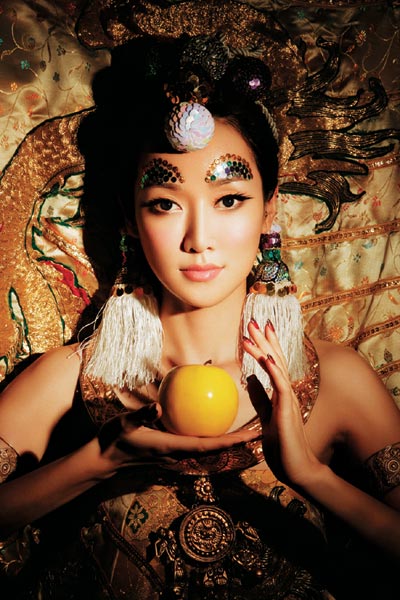
Sa Dingding, an imaginative and adventurous Chinese musician, is making the world sit up and take notice with her unique style. This is not pop music as the West knows it, but they sure like it.
There was a time when Western ears were only tuned to familiar forms of pop music. But a unique artist, not afraid to sing in a language she invented herself, has the West suddenly taking note of Chinese music.
With a unique and ethereal voice, Chinese singer/songwriter Sa Dingding, whose real name is Zhou Peng, made the world sit up and pay attention in London recently when she won the prestigious BBC Radio 3 Award for World Music in the Asia Pacific category.
Her striking music combines typical rhythms of Tibet and Inner Mongolia with Western electronica. And with lyrics in Mandarin, Sanskrit, Tibetan and a unique language she created herself, Sa and her songs are like nothing else on the world music scene. A breath of fresh air, some might say.
"It is the nationality and creativity of my music that has aroused the world's interest in Chinese music," Sa tells Shanghai Daily.
"Globally speaking, music is a kind of cultural envoy. I hope people of the world can hear Chinese culture in my songs and feel the pulse of the Orient."
To her, creativity is seldom immutable and frozen.
"I sometimes sing with my self-created language. Sometimes it is like a soliloquy, driven by emotions. It is the most natural thing," Sa says. "Anyone can develop their own creativity and express themselves freely in this way."
Emotions are carried not only in each of the different languages Sa uses, but also through her instruments. "Alive," her first international album, features zheng, a violin-like Chinese instrument, and matou qin, a typical Mongolian bowed instrument with two strings. Both instruments marry nicely with digital beats in her songs to create a charming Chinese touch.